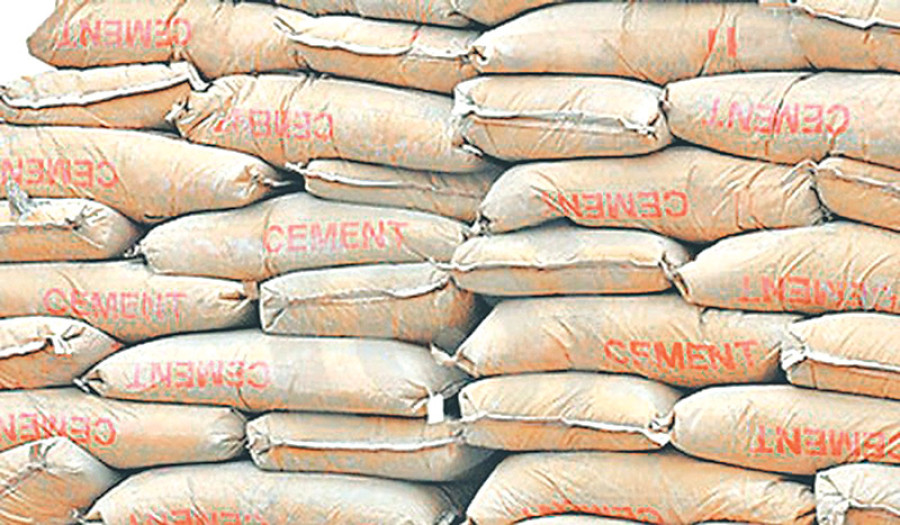Money
Annapurna Cements starts test production
Annapurna Cements located in the Sunsari-Morang Industrial Corridor has started test production.
Lila Ballav Ghimire
Annapurna Cements located in the Sunsari-Morang Industrial Corridor has started test production.
The Rs600 million plant, newly-established in one of Nepal’s key industrial regions, has a daily production capacity of 1,200 sacks of PPC cement. It expects to go into commercial production by June-end.
“We have adopted advanced technologies and modern equipment,” said Rajendra Rawat, director of the company. “We will be importing raw materials from India.” The factory plans to sell its products in Provinces 1, 2 and 3 in the first phase.
Demand for cement has been swelling due to ongoing development works across the country. The country’s cement industry received a boost following the start of widespread reconstruction after the devastating 2015 earthquake.
The construction of large hydropower projects and buildings and expansion of the country’s road network also drove growth.
Annapurna Cements is one of the new factories eyeing a higher market share in the Eastern Region. The country’s annual requirement of cement is estimated to be 5-5.5 million tonnes. Domestic factories fulfill around 80 percent of the total demand. The rest is imported from India.
According to the Trade and Export Promotion Centre, Nepal imported cement worth Rs934 million in the first 10 months of the current fiscal year. Imports were down 39.4 percent during the review period due to proliferation of cement factories in the country.
Capacity utilization of the cement industry amounts to around 60 percent of the installed capacity. Following a reduction in load-shedding hours, factories hope to increase output.
Nearly 80 cement plants are registered with the Department of Industry. Among them, 50 are currently in operation. Nearly two dozen plants are in the pipeline. Likewise, key manufacturers have been expanding their production capacity.
Rawat of Annapurna Cements, an industrialist who has been involved in the garment, petroleum and mining sectors for more than 35 years, said that the country would soon achieve self-sufficiency in cement. Cement imports have been dropping for the last few years. Nepal used to import Rs4 billion worth of the construction material annually until a few years ago. Annual imports have now shrunk to Rs1.5 billion.
Three new factories are coming up in Hattimudha, Morang. Industrialist Pradeep Murarka is establishing Adhunik Cements with an investment of Rs1 billion.
Likewise, a group of industrialists consisting of Hari Bansha Rathi, Manish Maru and others will be setting up Ultra Tech Cement at a cost of Rs1 billion.
Due to rapid urbanization and industrial development, the annual demand for cement in Nepal has been rising at a rate of 10 percent. Demand for cement in rural areas has also swelled due to road and infrastructure development.




 22.12°C Kathmandu
22.12°C Kathmandu















